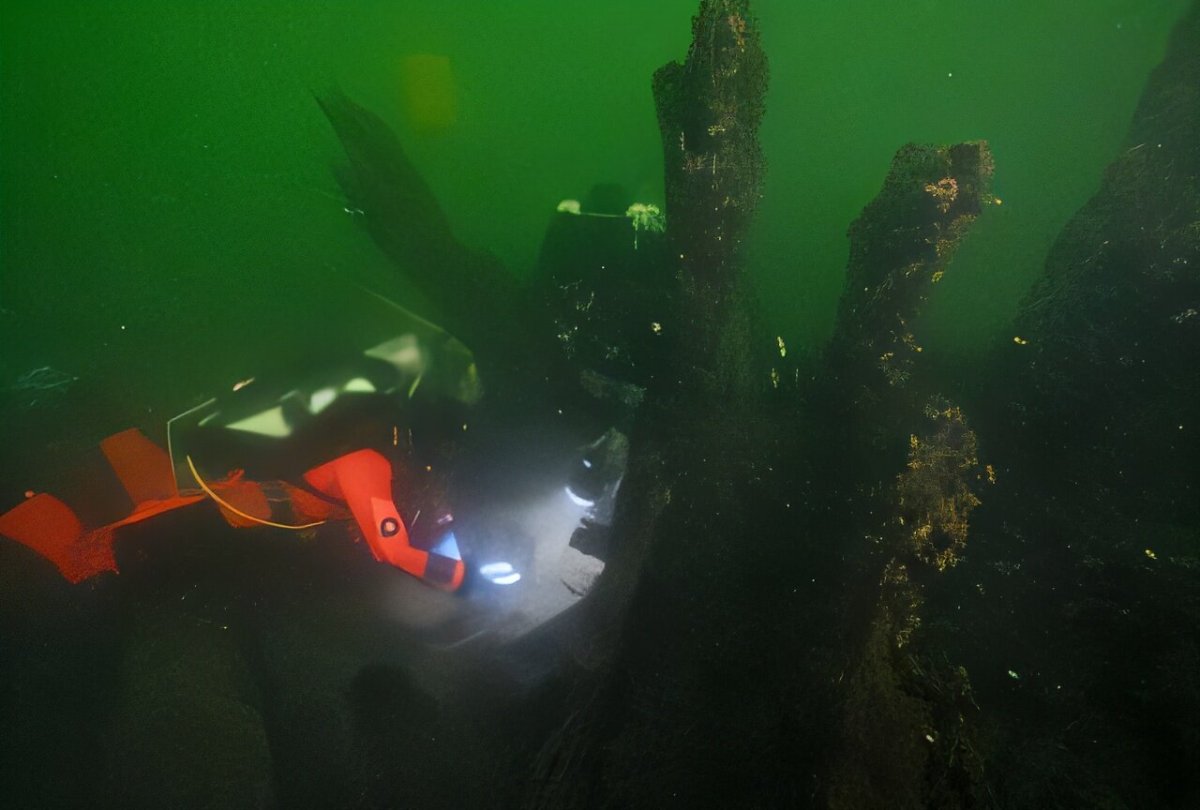Archaeologists have begun revealing the secrets of a 15th-century royal warship that allegedly sank following an explosion in the year 1495.
The Gribshunden was the personal flagship of King Hans of Denmark and Norway. It sank in the Baltic Sea while anchored off the coast of Ronneby, Sweden, while the monarch was attending a political summit in the city of Kalmar.
The wreck was discovered by local divers back in the early 1970s, but it only really came to the attention of the archaeological community in 2001, with excavations of the vessel gathering speed in recent years.
"We've found things on this site that have no precedent archaeologically," said marine archaeologist Brendan Foley of Sweden's Lund University—and formerly of Massachusetts's Tufts University—in a statement.
He added: "Everything about it is fascinating."

Once essentially a floating castle, the Gribshunden is now one of the better-preserved wrecks from its time, thanks in no small part to the low salinity of the Baltic Sea—which has kept shipworms from devouring the wooden vessel and its artifacts.
The vessel is one of the very first generation of artillery-carrying warships that facilitated long-distance voyages—and allowed European colonists to conquer, settle and exploit large portions of the globe.
So far, Foley and his colleagues have excavated around 2 percent of the wreck, but say they have already recovered enough artefacts to keep experts occupied for years to come.
"Hans used this [ship] as a military fortress, but also as an administrative center, as a cultural center, as a basis for his economic policies," Foley said. "We're finding evidence of all of this in the artifacts on board the ship."
Reflecting the beginning of the transition towards gunpowder-based weapons, the team has discovered several intact wooden crossbows, as well as early handguns.
Other finds include a purse full of silver coins, an assortment of the king's exotic spices—including cloves, pieces of ginger, peppercorns and fist-sized lumps of saffron—sourced from locations as far away as modern-day Indonesia.
Foley even found a unique-looking wooden tankard—made of a single piece of alder wood, one painted red, with a crown carved near its base—that made a bid for freedom as he tried to carefully remove it from the seafloor.
"I hadn't seen an artifact try to escape before. I had to hold it down!" Foley quipped.
The lively artifact was buoyant because it contained gas—the remnants of the decomposed beer or mead it had held when the ship went down.
For Foley, however, it is not the physical artifacts recovered from the Gribshunden that really matter—but the stories such objects can tell us about how people used to live and how moved about the past.
"Shipwrecks are like telephone calls—they're packets of information," Foley explained.
"And with the right technology and the right experts and insights, we can eavesdrop on these ancient telephone calls and reconstruct that conversation."
Do you have a tip on a science story that Newsweek should be covering? Do you have a question about archaeology? Let us know via science@newsweek.com.
Is This Article Trustworthy?
Is This Article Trustworthy?
Newsweek is committed to journalism that is factual and fair
We value your input and encourage you to rate this article.
Newsweek is committed to journalism that is factual and fair
We value your input and encourage you to rate this article.
About the writer
Ian Randall is Newsweek's Deputy Science Editor, based in Royston, U.K. His focus is reporting on science and health. He ... Read more



